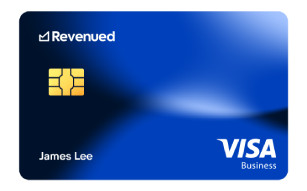What is the Difference Between Business and Personal Checking Accounts?
What is the Difference Between Business and Personal Checking Accounts?
Your business checking account is your cash flow hub — the place where revenue is deposited and expenses are paid.
While you could technically use a personal checking account for business, the difference between business and personal checking accounts becomes clear when you consider features designed specifically for business needs.
On the flip side, business accounts also come with higher fees and more restrictions. Be sure to carefully weigh the differences between business and personal checking accounts before choosing the one that works for you.
Do you need a business savings account?
Similarities Between Business and Personal Checking Accounts
If you’re a sole proprietor or run a home-based business, it may seem unnecessary to establish a formal business bank account. This is because, at a basic level, there’s little difference between checking and business checking for everyday transactions like deposits, withdrawals, and bill payments.
With either account type, you can:
- Deposit funds.
- Send payments using online bill pay.
- Set up overdraft protection.
- Schedule recurring ACH withdrawals.
- Utilize your debit card for purchases.
- Make transactions and monitor your account through online banking.
- Withdraw cash.
- Draft paper checks.
Business Checking Accounts Have More Restrictions
Though the essential functions are similar, the difference between business checking and personal checking becomes evident in areas like transaction limits, fees, and documentation requirements. For example, business checking accounts tend to have many restrictions, leading to higher costs and additional documentation.
- Free transaction limits — Unlike personal checking accounts, business accounts often cap the free transactions you’re allowed each month. When you reach that limit, you may be charged a small fee per transaction.
- Cash counting fees — Business accounts often let you deposit a specific cash amount per month for free; however, anything more will incur a cash counting fee.
- Monthly service fees — While free personal checking accounts are common, most business accounts have a standard monthly fee of about $10. Banks could waive this fee if you meet average daily balance requirements.
- Minimum balance requirements — Bank and credit unions often have stringent minimum daily or monthly balance requirements for business checking accounts. If your balance drops below the balance limit, you could be charged an additional service fee.
- More Documentation — To set up a business checking account, an Employer Identification Number (EIN) is required rather than a social security number. When establishing the account, your bank or credit union will likely request additional documentation regarding your business structure and ownership.
Why Choose a Business Checking Account?
With added costs and stricter requirements, you might wonder about the difference between a business account and a personal account — and whether it’s worth it. In most cases, the answer is yes. Business accounts typically come with additional features and inherent protections crucial for your operation’s success, including:
Advanced Payment Options
Business bank accounts often provide merchant services, allowing small business owners to accept credit or debit card payments from their customers.
Employee Debit Cards
Grant access to business checking account funds by issuing employee debit cards. Banks may also allow owners to establish withdrawal limits to maintain spending control
Tax Simplification
One key difference between business and personal bank accounts is how they simplify tax reporting by keeping personal and company finances separate.
Although not legally required for all small businesses, it will save you and your accounting team time when filing taxes or if you are audited. With a commingled account, you may find it challenging to sift through transactions to distinguish business-related from non-business-related expenses.
Professionalism and Credibility
What might have begun as a hobby or side hustle is now a fully-formed business. Having a business checking account will bolster your company’s appearance of professionalism. Your clients and business associates will be more inclined to trust and do business with you, thanks to the legitimacy provided by a business bank account.
Liability Protection
Opening a business checking account vs regular checking account helps legally separate business assets from personal property, offering critical liability protection. Taking this small step now could protect your hard-earned assets against future litigation.
If someone successfully sues your company, their lawyers may go after your business assets to settle the claim. If you lack adequate separation between personal and business finances, they could also go after your house and other personal property.
Improved Funding Opportunities
Lenders will recognize the formal separation of finances that comes with a business bank account vs personal account, increasing your credibility for loans and lines of credit. They’ll see you as a quality candidate for a business loan or line of credit.
Additionally, if you hold your business checking account at the bank where you’re applying for funding, that established relationship can further boost your loan approval odds.
RELATED ARTICLES
Revenued Business Flex Line vs Ecommerce Revenue Based Financing
Learn MoreRevenued Flex Line Pricing vs. (MCA): A Comparative Analysis
Learn MoreWhat is My Business’ Credit Utilization Ratio?
Learn MoreWhy is Cash Flow Important to Your Business?
Learn More
Boost your spending power with the Revenued Business Card
Only pay for what you use at gas stations, hotels, supply stores, supermarkets and more.
Take control with the Flex Line
Check your available balance online and request a cash draw with the tap of your finger, anytime.

